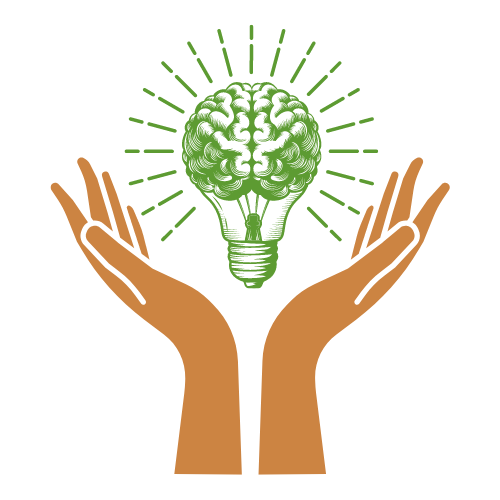Are you feeling stressed or overwhelmed with the chores of everyday? Have you ever thought that what if there is a secret way by which you can handle your stress effectively? Let me reveal this age old secret to you: “YOGA” – The ancient practice which goes beyond physical postures. The sweet combination of wellness, postures and breath work being the central theme of yoga. It helps in managing not only the stress but also helps in effective overall functioning of the body. Yoga for mental health has become increasingly popular due to its powerful benefits for emotional well-being. In this article, we will explore how yoga can enhance your mental wellness through five transformative practices and will understand how this magic is even possible.

“Yoga is the journey of the self, through the self and to the self”
– The Bhagavad Gita
Introduction to Yoga for Mental Health: Exploring the why’s and how’s
The Bhagavad Gita, a foundational text in Hinduism, offers timeless wisdom on achieving balance and inner peace. Within its verses lie profound insights of the connection between yoga and mental well-being which are achieved not just by yogic postures but by the practices of self discipline and focused consistent action.
The practice stated in Gita is the key to mastering your mind, managing emotions, and ultimately achieving a state of mental clarity and emotional stability which is thereby the main theme of yoga. Yoga however is the main theme encapsulated in this historical book. The exact origin of Yoga is still a mystery but as per the archaeological evidence, the practices of yoga dates back to thousands of years. Thus, it would be appropriate to mention that yoga for mental health is not a new concept but an age old practice.
Let us have a look at the “History of Yoga over the years”

How does mental health comes into picture and what is the relation of yoga with mental health?
Mental health is the state of wellbeing in which individuals realize their capabilities and while coping with the normal stressors of life, contribute to the society in the most effective way. In other words mental health is the state of achieving the sweet balance between individual and his surroundings wherein he is a state of peace and harmony and this state could only be achieved by Yoga. Mental health emphasizes that an individual should have a positive self-regard, adapt well to their environment, and make decisions independently. It’s essential to have a clear perception of reality, a sense of responsibility, and personal worth. Additionally, playing a satisfactory role within the community is crucial. Achieving these aspects helps in maintaining a balanced and healthy mental state. By focusing on these elements, individuals can enhance their mental well-being and lead a more fulfilling life.. As a whole a person with good mental health should have:
- Psychological Well-being
- Social Well-being
- Emotional Well-being
When we relate well being to yoga, the Greek mythological book – The Bhagavad Gita clearly states that a man with wisdom should be the below listed three qualities in order to attain peace, satisfaction and contempt.
- Vita raga – Free from pleasures
- Vita bhaya – Free from fear
- Vita krodha – Free from anger
The Bhagavad Gita teaches mental and emotional equilibrium, emphasizing balanced-mindedness to achieve well-being. Both yoga and well-being aim for positive mental health and a peaceful mental space, fostering relaxation, attentiveness, and a hopeful outlook on life. Practicing yoga for mental health aligns with the Gita’s teachings, promoting stress relief and emotional well-being. This alignment helps create a central existence of tranquility and positivity, enhancing overall mental wellness and fostering a balanced, peaceful state of mind. Through yoga, one can achieve a harmonious and fulfilling life.
Top 5 Ways of Yoga for Mental Health
- Mood Enhancing: Practicing yoga regularly boosts the production of happy hormones like serotonin, which act as natural mood enhancers. This helps in reducing stress and anxiety over time, promoting a balanced and positive mental state.
- Improved sleep quality: Yoga helps in enhancing the sleep quality by soothing any physical tension of the body. This calms the nervous system which always tend to be in a fight-flight mode and shifting it to rest and digest mode
- Increased attention and concentration: Yoga is based on the principles of mindfulness which involves focusing on what is happening in the present moment. Thus, analyzing the latter at the micro level thereby builds focus and attention
- Calming the mind and the body: Yoga is an amalgamation of techniques which focus on cultivating a sense of peace and calmness in the body by incorporating a third person’s perspective within oneself which not only helps in not engaging too much with the fluctuating emotions but also helps to regulate them
- Enhanced Confidence: It is rightly said that when you are in peace with yourself, nothing which is happening outside can shake you or make you loose your confidence. Yoga is the only practice which develops the inner satisfaction which is then visible inside out as confidence.
Achieve Mental Wellness with Yoga: Start Your Journey Today
It wouldn’t be wrong to say that yoga is like a master or joker card in a deck, right in front of everyone but still a secret to many. Yoga for mental health offers numerous benefits, such as improving mood, reducing stress, and enhancing overall well-being. By practicing yoga for stress relief and mental clarity, you can significantly improve your emotional well-being. Yoga also promotes mindfulness, helping you stay present and focused. The benefits extend beyond the mat, positively influencing how you handle life’s challenges and connect with others.
Regular yoga practice cultivates a positive mental space, essential for maintaining a balanced and peaceful state of mind. Whether dealing with daily stress or seeking a deeper sense of purpose, yoga provides the tools for mental equilibrium and resilience. The combination of physical postures, meditation, and breathing exercises works together to create a sense of balance and inner peace. This fosters relaxation, boosts attentiveness, and promotes a hopeful outlook on life.
Incorporating yoga into your daily routine can transform your mental health, leading to a more fulfilled and harmonious life. The consistent practice of yoga enhances mental clarity, improves decision-making, and helps you better regulate your emotions. All I would like to say is: try it for yourself and see the magic. Embrace yoga for mental health and experience the transformative power it holds.
Frequently Asked Questions:
- What are some yoga practices that can be done at home?
- You can start with simple poses like cat-cow stretch, Surya namaskar, Sukhasana (bridge pose) or deep belly breathing. Pranayama or Nadi Shodhana (nostril breating) is also something which could be done easily at home
- How often can I do yoga?
- It depends on your personal goals and routine. In general a short practice of 15 to 20 minutes daily can offer amazing benefits. Always remember consistency is the key, try doing your daily practice regularly in a relaxing environment.
- Do I need special equipment to do yoga?
- Yoga does not essentially needs any fancy equipment’s. A simple yoga mat will suffice.
